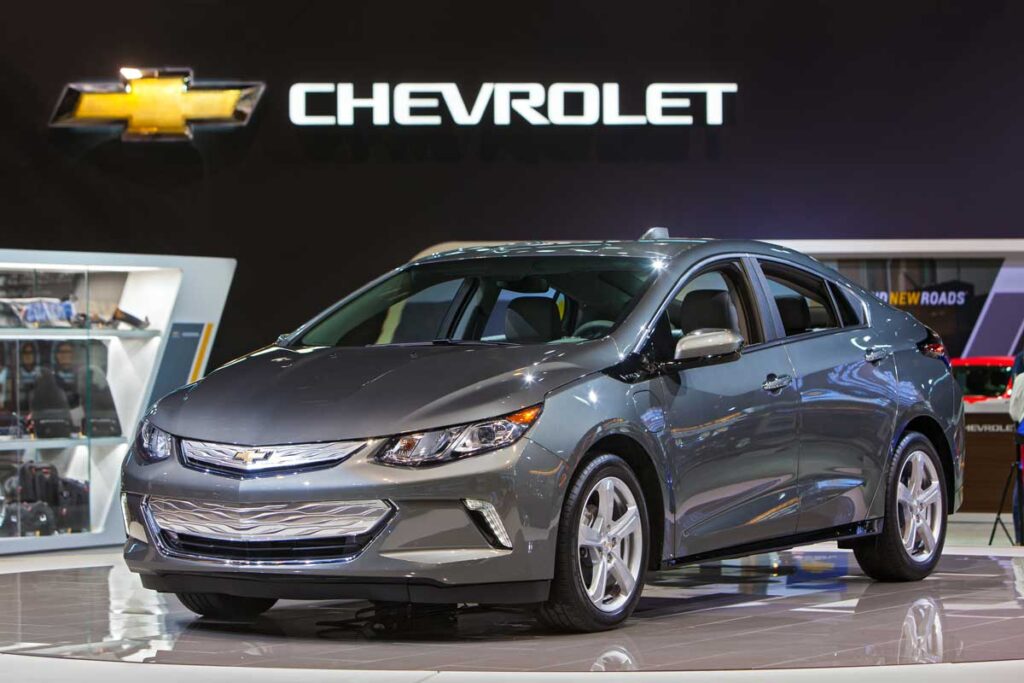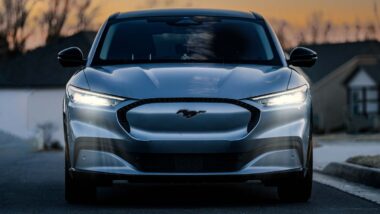Top Class Actions’s website and social media posts use affiliate links. If you make a purchase using such links, we may receive a commission, but it will not result in any additional charges to you. Please review our Affiliate Link Disclosure for more information.

Chevy Volt battery class action lawsuit overview:
- Who: Jason Miller filed a class action lawsuit against General Motors LLC.
- Why: Miller claims General Motors sold model year 2016 to 2019 Chevy Volt plug-in hybrid vehicles containing defective battery engine control modules.
- Where: The class action lawsuit was filed in Michigan federal court.
General Motors sold model year 2016 to 2019 Chevy Volt plug-in hybrid vehicles containing defective battery energy control modules, a new class action lawsuit alleges.
Plaintiff Jason Miller claims the alleged defect causes affected Chevy Volt plug-in hybrid vehicles to either suffer “a complete loss of propulsion while traveling at interstate speeds or entire failure to start.”
Miller argues that having a functioning battery energy control module is imperative for a plug-in hybrid vehicle such as a 2016-2019 Chevy Volt.
The alleged defect, meanwhile, is caused by either “defective materials or workmanship and/or manufacturing,” the Chevy Volt battery class action alleges.
“This manufacturing-related defect, present in Class Vehicles, led directly to (battery energy control modules) failure in Class Vehicles and has resulted in Plaintiff and the Class Members suffering actual and compensable damages,” the Chevy Volt class action states.
Chevy Volt battery class action accuses GM of common law fraud, unjust enrichment
Miller wants to represent a nationwide class and Kansas and Pennsylvania subclasses of consumers who have purchased, leased or owned a model year 2016 to 2019 Chevy Volt plug-in hybrid vehicle.
Miller accuses General Motors of unjust enrichment, common law fraud and negligence per se, among other things, and of violating the Magnuson-Moss Warranty Act, Kansas Consumer Protection Act and Pennsylvania Unfair Trade Practices and Consumer Protection Act.
He demands a jury trial and requests declaratory and injunctive relief along with an award of statutory, compensatory, exemplary and punitive damages for himself and all class members.
A separate Chevy Bolt class action lawsuit filed against General Motors in April argues the company sold certain Chevy Bolt EV and EVU model vehicles that allegedly contain a battery defect.
Have you purchased a defective Chevy Bolt? Let us know in the comments.
The plaintiff is represented by Tiffany R. Ellis and Paul F. Novak of Weitz & Luxenberg PC; Joe P. Leniski Jr., Tricia Herzfeld, Anthony Orlandi and Daniel P. Hull of Branstetter Stranch & Jennings PLLC; and Matthew D. Alison and Jason B. Aamodt of Indian and Environmental Law Group PLLC.
The Chevy Volt battery class action lawsuit is Miller, et al. v. General Motors LLC, Case No. 2:22-cv-12739, in the U.S. District Court for the Eastern District of Michigan.
Don’t Miss Out!
Check out our list of Class Action Lawsuits and Class Action Settlements you may qualify to join!
Read About More Class Action Lawsuits & Class Action Settlements:















19 thoughts onChevy Volt class action says battery defect causes vehicles to suddenly stop
Brought my car two years ago. Everything was fine except battery replacement. Check engine light would come on I would bring it to the dealer and it wouldn’t read when I had a warranty. Now as of yesterday it stopped completely working. It’s stuck in my garage and it reads battery issue and emissions. Now that the warranty is done it wants to die on me 😩
My 2017 Volt began displaying faults last October and I am still waiting for the BECM replacement part. Three months and no news about the part being available.
I just had the BCEM replaced in my volt.
My father had purchased a 2012 Chevy Volt. Had to pay full amount with interest and battery died within 6 months(he. d to take a lower interest lona. n, move etc…) Does this lawsuit pertain or have any links pertaining to earlier models. The battery was 5,000 too replace which we never were able to afford. This resulted in pain and suffering which included my father’s loss of employment, much younger singling under 18 being improperly cared for. and imo had a hand in what ended up being the divorce and family breaking up. Her mom ended up homeless and dependent on Alcohol. Thank Jesus her oldest eventually helped her when she was able to. This is not for myself but for my struggling and aging father.
Yep! Mine 2017 volt has been down for 2 months now BCEM!!!!
I have a 2017 Chevrolet Volt and it was just diagnosed with this problem. I am in Florida.
I’ve a 2017 and it appears that my Battery Energy Control Module has failed. Everett Bartz. Rangedogs@yahoo.com